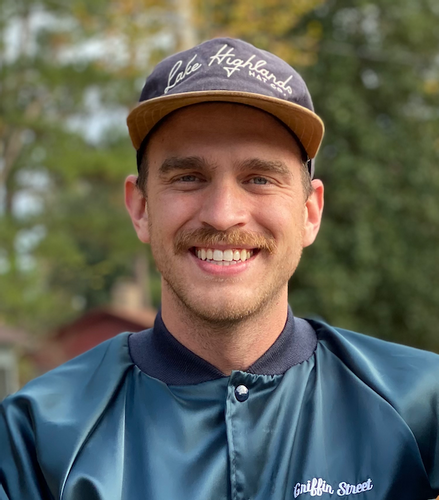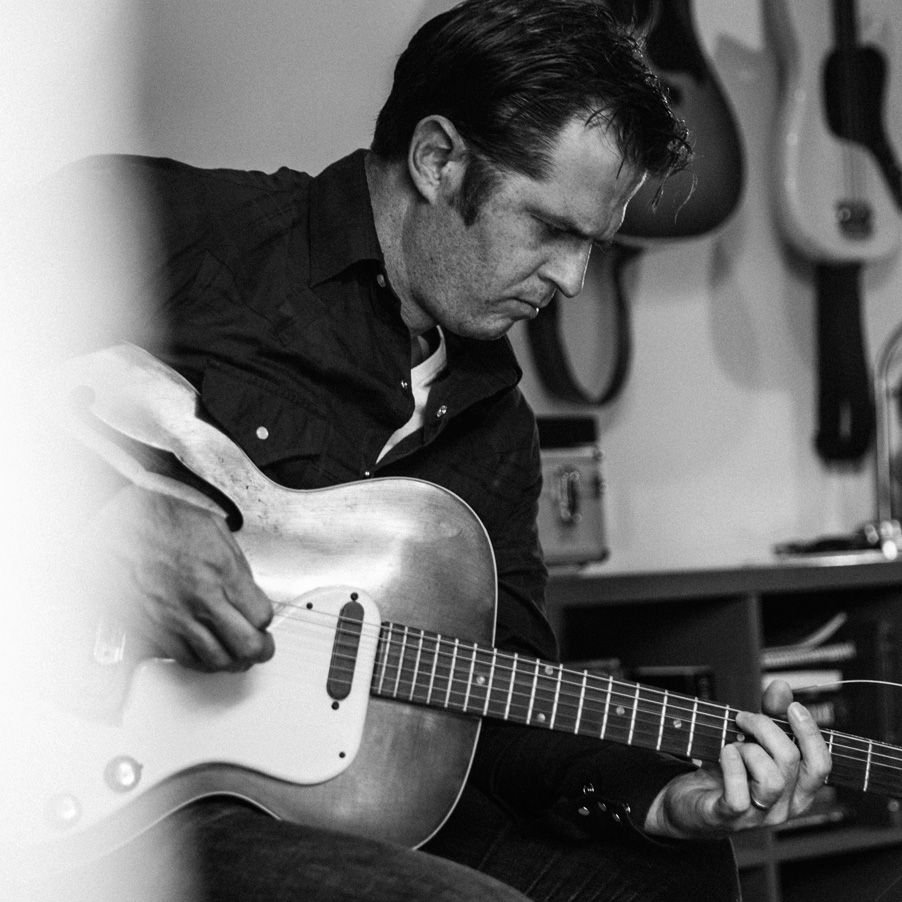Beau Jennings is a Norman, OK based singer-songwriter. Jennings works a full-time job at the University of Oklahoma and in his off time writes and records music, either by himself or with his band The Tigers. In 2005 he moved from Oklahoma to Brooklyn, NY to record music with his former band, Cheyenne, moving back to Norman, OK in 2012. He’s released seven albums between Cheyenne, solo efforts, and The Tigers. His 2015 release, The Verdigris, an exploration of the life of Oklahoma legend Will Rogers, was accompanied by a full-length documentary film he toured around the country. That album featured backing vocals and banjo playing by Sufjan Stevens. In 2019 he released The Thunderbird and followed it up with the acoustic version of the same album Son of Thunderbird a year later.
I wanted to talk to Beau for our “Five Questions” series because he offers a great perspective on side gigs, as someone with a full-time “normal” salaried job and a successful side career as a well-respected indie musician.
SB: You work a full-time job now and do your music in your free time, have you always worked full time? How have you balanced that dynamic?
BJ: I have pretty much always worked full time. I didn’t start playing music until college and at that point I was in architecture school, which is a pretty time-consuming thing. I remember early on, as far as mental energy and space, school was all consuming. But music was really what I wanted to do with all my time. I remember thinking that I was working on this degree, but I had this other thing pulling on my heart and something’s gotta give here pretty soon.
However, as time went on, nothing ever gave. I got my degree, I started working, I kept playing music and getting opportunities. They have always worked in-sync. I’m sure I have missed out on things that I otherwise would have been able to do if I spent more time playing shows or whatever, but at the same time I have been able to make every record because of the money I make in my job. The two are very symbiotic and inform each other in a lot of ways.
SB: Did you ever have the goal of quitting your job and going headlong into music? Has your perspective changed over the years?
BJ: At one point my goal was ‘How can I get to where music is my full-time job and pays my bills?’ That was maybe 15-20 years ago. To me that was a worthwhile goal. I do not see that as a worthwhile goal anymore whatsoever. As a musician, you have to start changing what you do to get to that level of notoriety and success. And you can get there if that’s your goal. But you take different types of gigs and those gigs require a different type of music. So you start writing different types of songs to get those gigs to appeal to a bigger audience. And I’m not passing judgement on the people who do that.
Because I’ve had the luxury, or burden, of always working, I quit worrying about if the music will pay the bills. That’s not my goal. My goal is to create something that is honest and pure and artistically fulfilling and present it as well as possible.
SB: You’ve worked with record labels and you’ve worked completely independently, but for the most part you’ve financed your music yourself, how does footing the bill change how you work in the studio?
BJ: You can record a whole album on your iPhone these days and it will sound decent, or you can spend tens of thousands of dollars in a studio making it sound perfect, depending on what you’re trying to create. So I have had to learn the art of budgeting time in the studio and streamlining creative decisions so that I can stay focused on what I’m trying to get done as opposed to what feeds my ego. I’ve learned over time what the frills are and what the guts are and how to stay focused on the guts.
The point is to always stay focused on what the spirit of what you are trying to do is. If everything can be brought in alignment with that mission statement then that’s the best way to go about it.
SB: Do your full-time job and your music inform each other? Are you better at one because of the other?
BJ: When it comes to work, I have learned things I’d never have learned if I only played music. These life lessons and concepts 100% find their way into the writing. In the same way, the concepts and principles I try to uphold and reflect in my music, need to be reflected in my work life too. I don’t want to be someone who sings about something and doesn’t do that in their real life. I really try to strive for this harmonious thing all around.
I’m not going to make a different record to try and get it on some kind of chart, especially one that doesn’t resonate with me. I would be doing that to make money but then I would lose out on making the music I want to make. Right now I have a job that lets me make the music I want to make. If I did that, I wouldn’t make the music I want to make, so that the "job" of music would pay the bills.
I don’t want to be someone who sings about something and doesn’t do that in their real life.
SB: What advice would you give to a young musician working multiple jobs and trying to balance these two worlds? How can they make sure to stay true to themselves while working to be as successful as they can?
BJ: Make art as pure as you can and present it as pure as you can and let it exist. You have to do it that way. When you don’t make music for you and you make music hoping you’re appealing to everyone, people can sniff that out pretty fast. Then it’s kind of insulting to them because it’s like, “man you just made this record because you thought this is what I want to hear and you think I’m an idiot. It’s not what I want to hear, I want to hear something unique.” It comes down to connection and communication. The more directly an artist can communicate to the listener, the more compelling it can be.
Photo Credit Ryan Magnani
---
Indy was created for independent workers of all types who want to focus more on the creative side and less on the business side. Check out our easy-to-use invoice, contract, and proposal tools.



